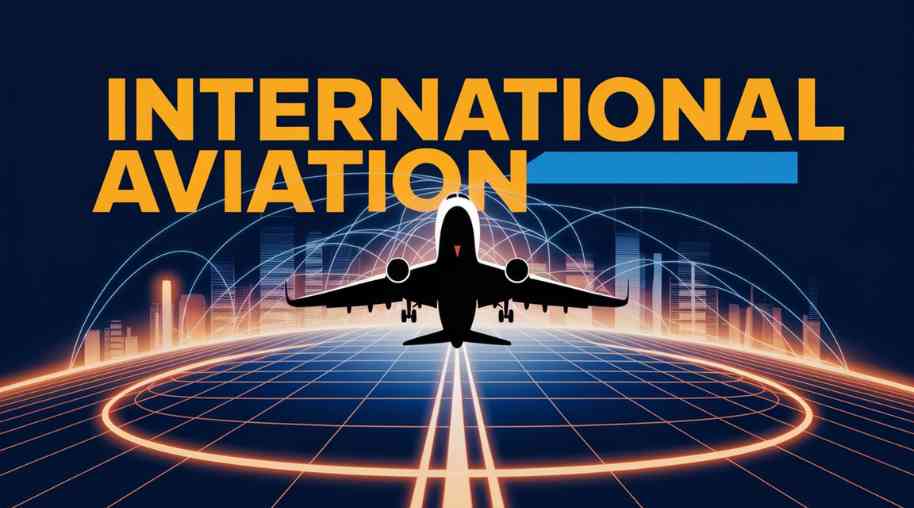ICAO Full Form-International Civil Aviation Organisation
by Shashi Gaherwar
0 2302
International Civil Aviation Organization: Advancing Global Aviation Safety
The **International Civil Aviation Organization (ICAO)** is a specialized agency of the **United Nations (UN)**, responsible for setting **international aviation standards** and ensuring the safe, secure, and efficient operation of **global air transport**. Established in 1944 under the **Chicago Convention**, ICAO plays a **crucial role** in harmonizing aviation policies among its **193 member states**, making air travel safer and more accessible worldwide. This article delves into the history, structure, functions, achievements, and challenges of ICAO in regulating **global air transport**.

History and Establishment of ICAO
ICAO was founded on **December 7, 1944**, when 52 nations signed the **Convention on International Civil Aviation (Chicago Convention)** to create a standardized framework for global aviation. The organization officially became operational on **April 4, 1947**, and has since evolved to address emerging challenges in **civil aviation**.
Structure and Governance of ICAO
ICAO operates through a well-defined governance structure:
- Assembly: The highest decision-making body, comprising representatives from all member states, meets every **three years** to set policies and strategic objectives.
- Council: A **36-member body** elected by the Assembly, responsible for implementing policies and overseeing ICAO’s operations.
- Secretariat: Headed by the **Secretary-General**, it executes ICAO's **technical** and **administrative** functions.
- Commissions and Panels: Specialized bodies that develop and revise **global aviation standards** and recommended practices (SARPs).
Key Functions and Responsibilities of ICAO
ICAO plays a **vital role** in shaping global aviation through its core responsibilities:
- Standardization of Aviation Regulations: Develops and enforces **international aviation standards** and recommended practices (SARPs) across domains like **safety**, **security**, **air navigation**, and **environmental protection**.
- Safety Oversight and Audits: Conducts regular **safety audits** to ensure member states comply with global aviation safety protocols.
- Air Traffic Management (ATM): Develops guidelines to enhance **air traffic management**, reducing congestion and improving efficiency.
- Aviation Security: Works to prevent **unlawful interference** in air travel, addressing issues like **terrorism** and **cyber threats**.
- Environmental Protection: Promotes **sustainable aviation practices** by reducing **carbon emissions** and developing alternative fuels.
- Capacity Building and Technical Assistance: Provides **technical training** and support to developing nations to improve **aviation infrastructure** and safety compliance.
Pro Tip: ICAO’s SARPs ensure uniformity in aviation practices, enhancing global safety.
ICAO's Impact on Global Aviation
ICAO’s initiatives have significantly transformed the **aviation industry**:
- Enhanced Safety Standards: Adoption of SARPs has led to a significant reduction in **aviation accidents** and incidents.
- Uniform Air Traffic Regulations: Ensures smooth coordination between different countries' **airspace systems**.
- Facilitation of International Air Travel: Establishes standardized procedures for **passports**, **visas**, and **airport security** to streamline air travel.
- Economic Development: Supports air transport policies that boost **global trade**, **tourism**, and **connectivity**.
- Sustainable Aviation Practices: Promotes **carbon-neutral growth** through initiatives like **CORSIA (Carbon Offsetting and Reduction Scheme for International Aviation)**.
Key Impact: ICAO’s efforts have made air travel safer and more sustainable worldwide.
Challenges Faced by ICAO
Despite its achievements, ICAO encounters several **challenges** in maintaining global aviation standards:
- Evolving Security Threats: **Cybersecurity threats**, **terrorism**, and **unmanned aerial vehicles (drones)** pose ongoing risks.
- Climate Change and Carbon Emissions: Addressing aviation’s **environmental impact** and promoting **sustainable fuels** remain critical.
- Technological Advancements: Integrating **AI**, **automation**, and **digital air traffic control** systems into aviation operations.
- Geopolitical Conflicts: Managing **airspace restrictions** due to international disputes and conflicts.
- Regulatory Compliance: Ensuring all member states consistently adhere to ICAO’s **aviation regulations**.
Future Prospects of ICAO
ICAO continues to focus on several key areas to advance the **aviation industry**:
- Digitization and Smart Aviation: Implementing **digital air traffic control**, **AI-driven navigation**, and **automated safety measures**.
- Green Aviation Technologies: Encouraging **sustainable fuels** and **electric aircraft** to reduce carbon footprints.
- Global Airspace Integration: Coordinating **traditional aircraft**, **drones**, and **commercial spaceflight** seamlessly.
- Enhanced Passenger Experience: Simplifying **security checks**, improving **biometrics**, and implementing seamless travel technologies.
- Stronger International Cooperation: Strengthening collaboration with **airlines**, **airports**, and **governments** to foster safer air travel.
The **International Civil Aviation Organization (ICAO)** serves as the backbone of **global aviation regulation**, ensuring **safety**, **security**, and **efficiency** in air transport. As air travel continues to expand, ICAO’s role in setting **global standards** and fostering **innovation** becomes even more critical. By addressing **emerging challenges** and embracing **technological advancements**, ICAO remains a **driving force** in shaping the future of **international aviation**.
Further Learning Resources
If you’re passionate about building a successful blogging website, check out this helpful guide at Coding Tag – How to Start a Successful Blog. It offers practical steps and expert tips to kickstart your blogging journey!
For dedicated UPSC exam preparation, we highly recommend visiting www.iasmania.com. It offers well-structured resources, current affairs, and subject-wise notes tailored specifically for aspirants. Start your journey today!

Share:









Comments
Waiting for your comments